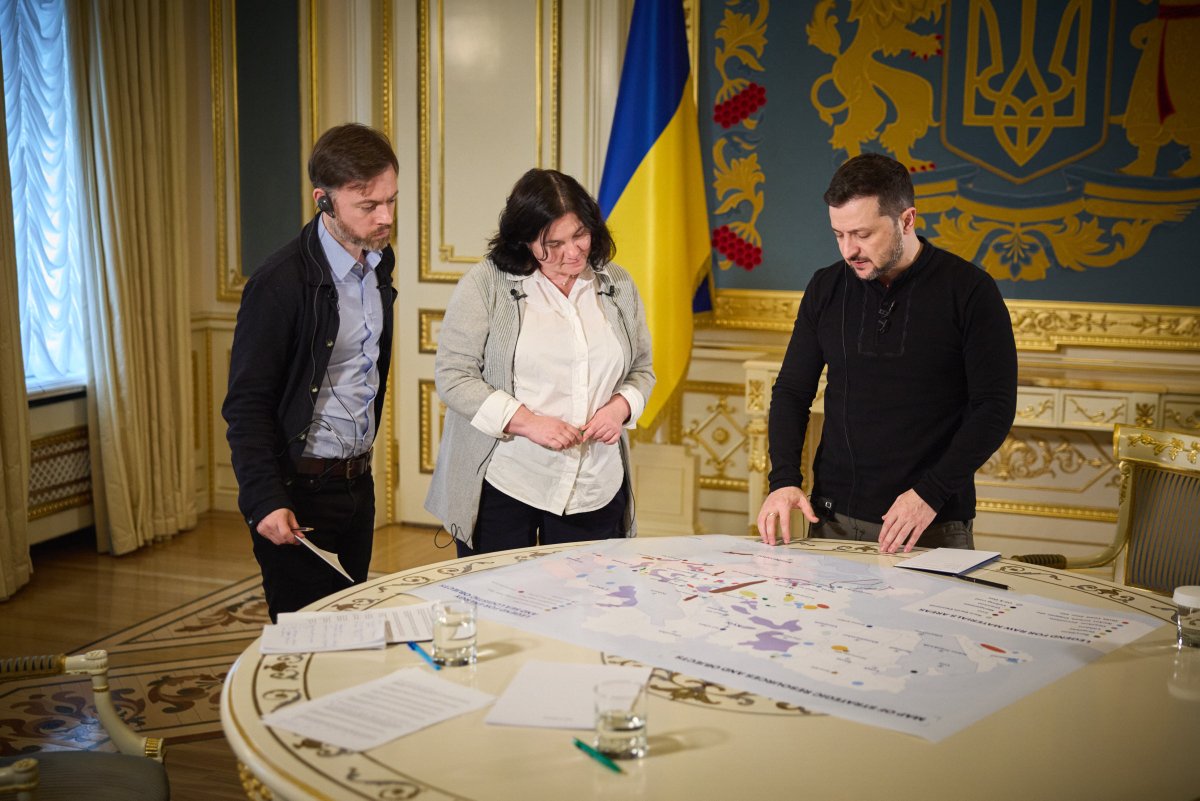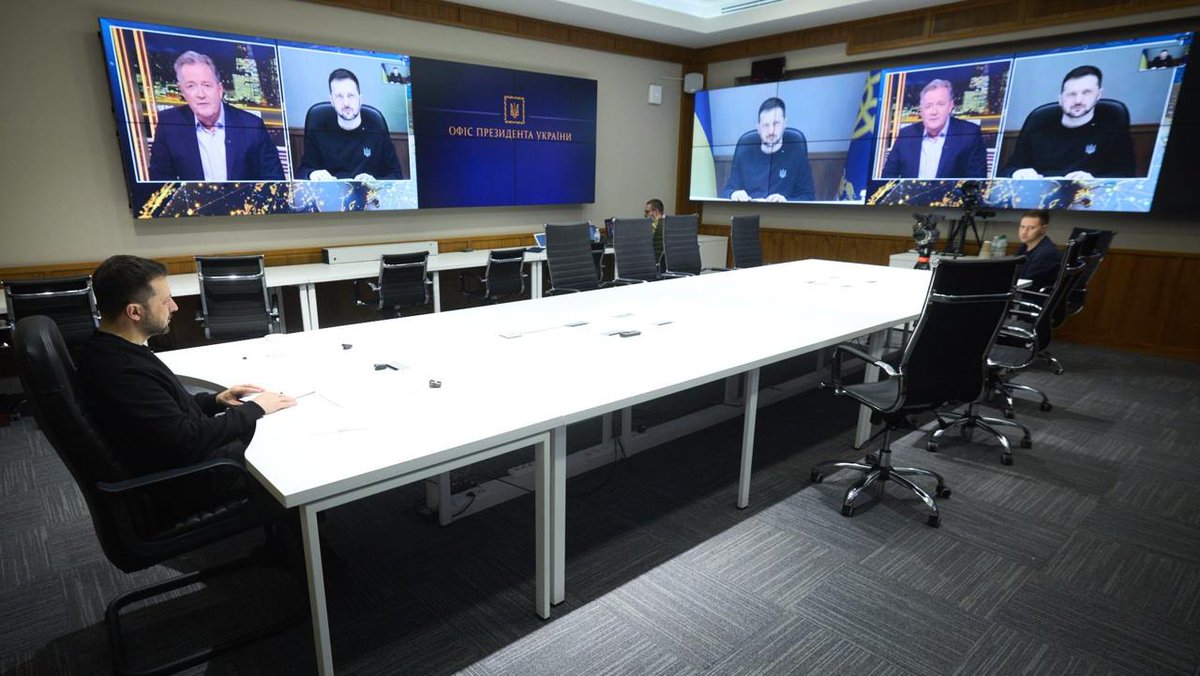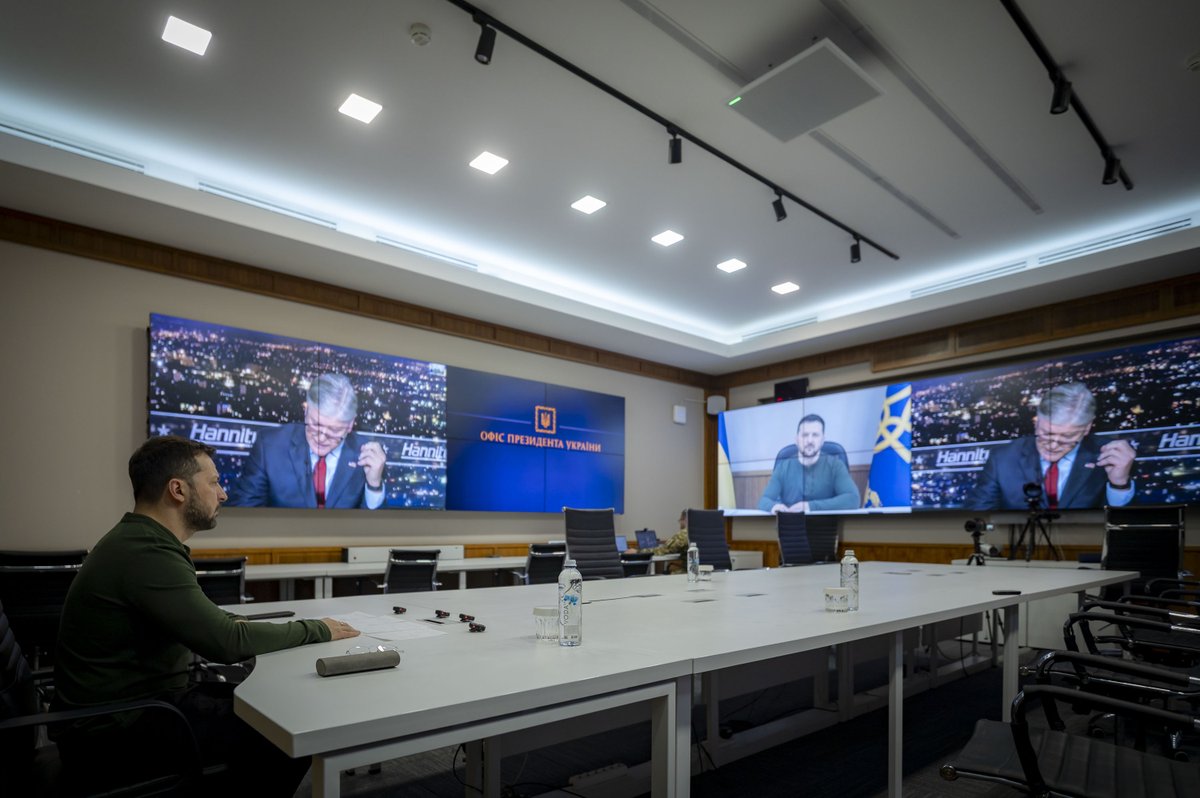At the Munich Security Conference, I emphasized that European policy must not just be promising—it must make America want to stand with a strong Europe. Europe must decide its own future with confidence in its strength so that others have no choice but to respect its power. 

The night before Munich, a Russian attack drone struck the sarcophagus covering the ruined fourth reactor of the Chernobyl nuclear power plant. A Shahed drone, modified by Russia with Iranian technology, carrying at least 50kg of explosives.
We see this as a deeply symbolic move by Russia. Just recently, in Ukraine, we discussed nuclear energy as a crucial factor in energy security, despite Russia’s constant attacks. We are preparing to expand the Khmelnytskyi nuclear power plant with involvement from American businesses, including Westinghouse. This will strengthen not just Ukraine’s energy security, but all of Europe’s.
We also discussed Zaporizhzhia NPP with President Trump and his team—Europe’s largest nuclear plant, currently occupied by Russia. And Russia’s response? A drone strike on Chernobyl’s sarcophagus, which holds radioactive dust and debris.
This isn’t just madness. This is Russia’s stance. A country launching such attacks does not want peace. It is not preparing for dialogue. Almost every day, Russia sends up to 100 Shahed drones, along with ballistic missile strikes and an increasing number of aerial bomb attacks. But that’s not all.
This year, Moscow plans to create 15 new divisions—150,000 troops. That’s more than the entire armies of most European countries. Russia is opening new military recruitment centers weekly. And Putin can afford it—oil prices remain high enough for him to ignore the world.
We have clear intel: this summer, Russia plans to send troops to Belarus, under the pretext of “training exercises.” That’s exactly how they staged forces before the full-scale invasion of Ukraine. Is this Russian force meant to attack Ukraine? Maybe. Or maybe—it’s meant for you.
Let’s not forget: Belarus borders three NATO countries. It has become a Russian military foothold. Putin and Lukashenko admit that Belarus now hosts banned weapons—medium-range missiles and even nuclear arms. Putin sees Belarus as another Russian province.
If someone is setting up a military launchpad—what should we do about it? More importantly—what can we do before the next attack? There have already been provocations on Polish and Lithuanian borders, using migrant crises staged by Russian intelligence to stir up chaos. But what if next time, it’s not migrants? What if it’s Russian or North Korean troops?
Make no mistake—North Koreans are not weak. They are learning how to fight modern war. And what about your armies? Are they ready? If Russia launches a false flag operation or invades from Belarus—just like Crimea in 2014—how fast will allies respond? And will they respond at all?
Yesterday, here in Munich, the U.S. Vice President made it clear: the old relationship between Europe and America is ending. From now on, things will be different, and Europe needs to adjust.
I believe in Europe. And so must you. I urge everyone to act—for your own sake, for the sake of Europe, for your people, your homes, your children, and our shared future. For this, Europe must become self-sufficient—united by common strength, Ukrainian and European.
Right now, Ukraine’s army, supported by global aid, is holding back Russia. But if not us, then who will stop them? Let’s be honest—we can’t rule out the possibility that America might say “no” to Europe on issues that directly threaten it.
Many leaders have spoken about Europe needing its own military—an Army of Europe. I believe that time has come. The Armed Forces of Europe must be created. This is not harder than standing firm against Russian attacks, as we have already done. But this isn’t just about raising defense spending as a GDP ratio.
Money is necessary, but money alone won’t stop an enemy assault. Weapons and trained soldiers don’t come for free, but it’s not just about budgets. It’s about people realizing the need to defend their own home.
Without Ukraine’s army, Europe’s armies alone will not be enough to stop Russia. Only our army in Europe has real, modern battlefield experience. But our army alone is not enough either. We need what you can provide—Weapons. Training. Sanctions. Financing. Political pressure. And unity.
Three years of full-scale war have proven that we already have the foundation for a united European military force. Now, as we fight this war and lay the groundwork for peace and security, we must build the Armed Forces of Europe. So that Europe’s future depends only on Europeans, and decisions about Europe are made in Europe.
That is why we are talking with European leaders and the U.S. about military contingents that can ensure peace—not just in Ukraine, but across Europe. That is why we are developing joint weapons production, especially drones.
The Danish model of pooled investments for arms production in Ukraine is already working—and working well. Last year alone, thanks to Ukrainian and partner efforts, we produced over 1.5 million drones of various types. Ukraine is now the world leader in drone warfare. This is our success—but it’s also your success.
Everything we build for our own defense also strengthens your security. The same must apply to artillery, air defense, armored vehicles. Everything needed to protect lives in modern war should be produced in Europe—fully.
Europe has everything it takes. Europe just needs to come together and act, so that no one can say “no” to Europe, boss it around, or treat it like a pushover. This isn’t just about stockpiling weapons. It’s about jobs, technological leadership, and economic strength for Europe.
Last fall, in my Victory Plan, I proposed replacing part of the U.S. military presence in Europe with Ukrainian forces—if Ukraine is in NATO. If the U.S. reduces its presence, it’s dangerous—but Europe must be ready. I raised this even before the U.S. elections, seeing where American policy was heading. But America must also see where Europe is heading.
This direction of European policy must not only be promising—it should make America want to stand with a strong Europe. Europe must decide its own future. We need confidence in our own strength so that others have no choice but to respect Europe’s power. Without a European army, that is impossible.
This isn’t about replacing the NATO Alliance. This is about making Europe’s contribution to our partnership equal to America’s. We need the same approach in diplomacy—working together for peace. Ukraine will never accept deals made behind our backs without our involvement. The same rule should apply to all of Europe.
No decisions about Ukraine without Ukraine. No decisions about Europe without Europe. Europe must have a seat at the table when decisions about its future are made—anything else is nothing. If we are left out of negotiations about our own future, we all lose.
Look at what Putin is trying to do. This is his game. He wants one-on-one talks with America—just like before the war, when they met in Switzerland and looked like they were about to carve up the world. Next, he will try to get the U.S. president standing on Red Square on May 9—not as a respected leader, but as a prop in his performance.
We don’t need that. We need real success. Real peace. Some in Europe may not fully understand what’s happening in Washington right now. But let’s focus on understanding ourselves—right here, in Europe. We must first give strength to Europe.
Does America need Europe? As a market—yes. But as an ally? For the answer to be “yes,” Europe must have a single voice—not a dozen different ones. Even those who regularly visit Mar-a-Lago must be part of a strong Europe—because President Trump doesn’t like weak friends. He respects strength.
Some in Europe may be frustrated with Brussels. But let’s be clear—if not Brussels, then Moscow. That’s geopolitics. That’s history. Moscow will pull Europe apart if we, as Europeans, don’t trust each other.
A few days ago, President Trump told me about his conversation with Putin. Not once did he mention that America needs Europe at that table. That says a lot. The old days are over—when America supported Europe just because it always had.
President Trump once said: What matters is not the family you were born into, but the one you build. We must build the closest possible relationship with America, a new relationship—but as Europeans, not just as separate nations. That’s why we need a unified foreign policy, a coordinated diplomacy—the foreign policy of a common Europe. And the end of this war must be our first shared success in this new reality.
We are already working to ensure that on February 24, the third anniversary of Russia’s full-scale invasion, we can gather together in Kyiv and online. All European leaders. All key partners who defend our security. From Spain to Finland. From Britain to Poland. From Washington to Tokyo.
This meeting must deliver a clear vision for our next steps—on peace, security guarantees, and the future of our collective policy. I do not believe in security guarantees without America—they will be weak. But America will not offer guarantees unless Europe’s own guarantees are strong.
I also will not take NATO membership for Ukraine off the table. But right now, the most influential member of NATO seems to be Putin—because his whims have the power to block NATO decisions. That’s despite the fact that it was Ukraine’s army that stopped Russia—not a NATO country, not NATO troops, but only our people and army.
There are no foreign armies fighting on Ukraine’s side in this war. But Putin has lost almost 250,000 soldiers. Over 610,000 have been wounded. Just in the Battle of Kursk, our troops eliminated nearly 20,000 Russian soldiers. We completely destroyed the North Korean units that Putin had to bring in because his own forces weren’t enough to hold back our counteroffensive.
For over six months now, Ukrainians have been holding a foothold inside Russian territory, even though it was Russia that wanted to create a “buffer zone” inside our land. I am proud of Ukraine and our people. But I ask each of you to honestly answer: If Russia came for you, could your army fight the same way?
I don’t want anyone to ever have to find out. That’s why we are talking about security guarantees. That’s why we believe the core of any security guarantees for Ukraine must be NATO membership. Or, if not that, then conditions that allow us to build another NATO, right here in Ukraine.
At some point, there will be a border between war and peace. Where that border is drawn, and how strong it is—it’s up to us. Ukraine’s eastern border, Belarus’s eastern border, the eastern borders of the Baltic states, Finland’s eastern border. That is the strongest security line for all of us in Europe because that is the line of international law.
Do we still remember what international law is? Let’s be honest, the phrase “international law” already sounds a bit outdated. But I believe that Europe’s mission is to ensure that international law still matters.
What security guarantees can Putin offer? Before the war, many doubted whether Ukraine’s institutions could withstand Russian pressure. But in the end, it was Putin who faced an armed rebellion from within. He was the one who had to defend his own capital from his own warlords. That alone shows his weakness.
What happens to the million Russian troops currently fighting in Ukraine? Where they’re going to fight if not in Ukraine? We cannot just agree to a ceasefire without real security guarantees, without pressure on Russia, without a system to keep Russia in check.
To fight us, Putin pulled troops from Syria, Africa, the Caucasus, even some from some part of Moldova. Right now, he faces a shortage of fighting forces. If this war ends the wrong way, he will have a surplus of battle-tested soldiers who know nothing but killing and looting.
This is yet another reason why this war cannot be decided by just a few leaders—not by Trump and Putin, not by me and Putin, not by anyone here in Munich sitting down with Putin alone. We must apply pressure together—to make real peace.
Putin cannot offer real security guarantees. Not just because he is a liar, but because Russia, in its current state, needs war to hold power together. And the world must be protected from that.
What is needed? The Armed Forces of Europe as an upgrade to NATO. A common European foreign policy. A level of European cooperation that Washington has to take seriously. International law. Keeping all pressure on Russia, because that pressure is what guarantees peace, not Putin’s words, not just some papers.
Putin lies. He is predictable and weak. We must use that—now, not later. We must act as Europe, not as separate people. Some say that the new year doesn’t start on January 1, but with the Munich Security Conference. This new year starts now—let it be the year of Europe. United, strong, secure, and at peace. Peace for Ukraine, Europe, and all the world.
• • •
Missing some Tweet in this thread? You can try to
force a refresh








